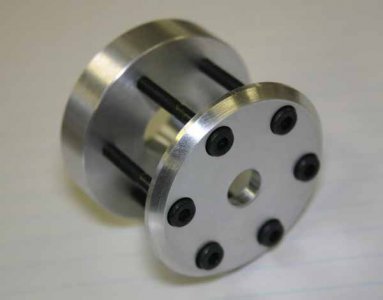Yes, I've looked into those. Seems like a good idea.
If my four bolt improvement acts up I'll add two set screws.
If I get any more problems I'll go for the solid tool post solution.
If anything, these problems with cheap lathes makes me learn a lot about lathes, so when the day comes to buy a large second hand monster I know what to look out for.
If my four bolt improvement acts up I'll add two set screws.
If I get any more problems I'll go for the solid tool post solution.
If anything, these problems with cheap lathes makes me learn a lot about lathes, so when the day comes to buy a large second hand monster I know what to look out for.


